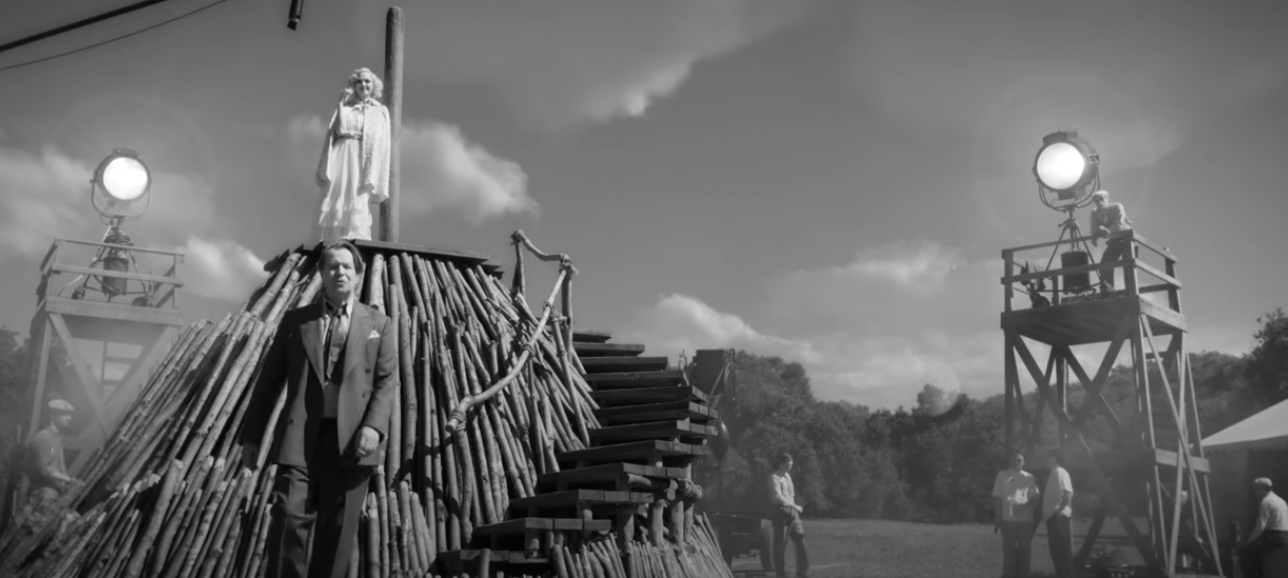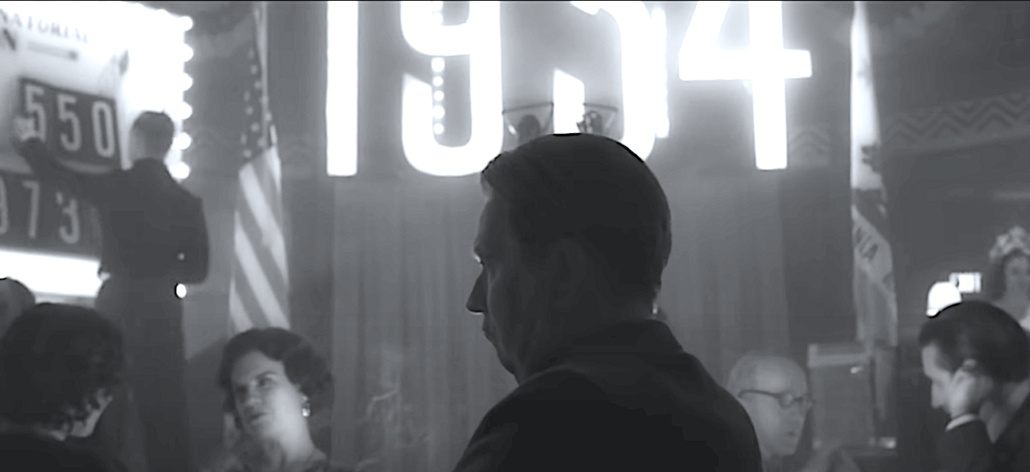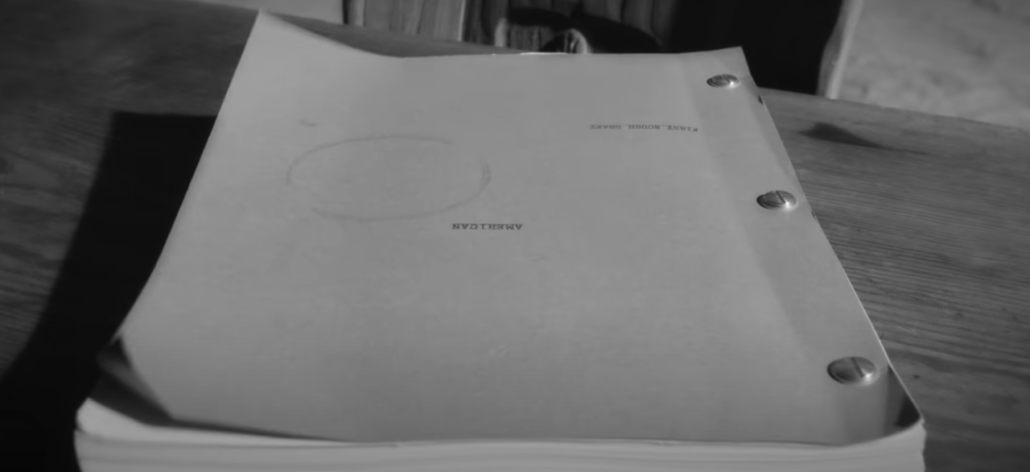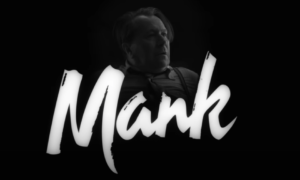

by Quendrith Johnson, Los Angeles Correspondent
“Times are changing, Mr. Mankiewicz,” says GOT’s Charles Dance as William Randolph Hearst in the Gary Oldman starrer MANK, but have they really changed? Hearst is TPTB or the powers that be, paying half the salary of CITIZEN KANE screenwriter Herman J. Mankiewicz without his knowledge. And that’s the only spoiler you’ll find here. Netflix released MANK in theaters back in mid-November, and the Dec. 4 streaming release date had little fanfare. But it is catching on as a hit now. Just in time for Award Season.


Usually the saying goes: ‘Hollywood hates pictures about Hollywood.’ However in this case? Tom Burke is spellbinding as the embodied Orson Welles, the Boy Genius, whose sonorous voice brings chills in its accuracy. Burke at 39 plays the 24-year-old Mercury Theater radio impresario bought by RKO to translate his considerable talents. The language of the period is a snapshot of a bygone era.
The politics, including the threat of so-called Socialism and purported Communism against the backdrop of Fascist on the rise, reflect the 30’s, but even echo today. This is not just for insiders and cinephiles, for everyone, especially for those who can intuit the parallels to our society now. Not just about free speech, but the power of media (read: social media) moguls, and their ability to influence political campaigns via sophisticated advertising campaigns. Right, Left or Center, the message is poignant.


Ostensibly MANK is a story about the writing of CITIZEN KANE, which by most critical and institutional appraisals is the greatest movie ever made. Gary Oldman leads this frighteningly well-cast film under the expert direction of David Fincher.
Written by Jack Fincher who died in 2003, the elder half of the winning team here will regrettably never see his masterpiece made about a major piece of Hollywood lore by his son.
See into Hollywood’s past from this clip for MANK
The movie is achingly accurate in the dynamics between supporters of “Socialist” Upton Sinclair versus the conservative Republican candidate of the period. But it also nails the L.B. Mayer speech to his Depression-era “studio family” in the salary cut pitch. WGAw activist Del Reisman, elected President from 1991-93, knew the industry as a self-proclaimed studio brat, and later as an industry insider, as well as screenwriter. He recalled the founding of the Writers Guild in an interview conducted under the auspices of the WGA back in the 2000’s. Del Reisman died in 2011, but his Hollywood oral history lives on. This is what he said about the period.
“The Screen Writers Guild was founded in March 1933 at the absolute depths of the depression when America was on its heels,” Reisman explained. “The industry was in turmoil. The studios were all declaring cuts in fees. There was a famous meeting at MGM, which was the giant studio at the time, in which the head of the studio, Louis B. “LB” Mayer, presided. All employees were there: movie stars, grips, everyone. Mayer announced there would be a salary cut of 50 percent. Those earning less then $50 a week would get cut less, and those earning above $50 a week would be cut [back] more. in those days $50 a week was a very livable income. There was a popular star, a great character actor named Wallace Beery sitting in the back, he said: ‘LB are you going to take the cut too?” And LB said: ‘Well, no. We plan to restore the cuts in six months.’ And Wallace Berry walked out of the meeting.”
MANK accurately chronicles that LB never paid the lost wages back. Del Reisman also mentioned another earth-shaking development at the time.
“There were salary cuts all over. Earlier, some of the writers under contract went to see the creative head of MGM, Irving Thalberg. [Thalberg] said: ’I can’t do anything about this.’ And the writers said: “’You raised the regular salaries of the [below-the-line] people on the set.’ And Thalberg said: ‘Well, they are represented by unions.’ The writers left and said: ‘I think he just told us what to do.’ The connection that I make, just a personal reaction, is this — there was a tremendous earthquake in Hollywood [at this time], and it shook down most of Long Beach and Compton — [but] there were faults that came up into this area. A lot of the office buildings downtown lost their decorative statuary, and miles away at Hollywood High School, where I attended years later, were damaged. There was some death and some injury… terrible property damage. Then a month later the Writers Guild was founded. I always make the connection there were two great shakes of the earth that historic month.”
What does Gary Oldman’s Mank say about LB? “If I ever go to the electric chair, I would like him to be sitting on my lap.” Just when you thought Oldman couldn’t get any better, he soars for Fincher. Maybe it’s just another quip in the film that qualifies it as an instant classic, but this screenplay may even amend the old saying referenced above. “Hollywood hates pictures about Hollywood…” unless they are exceptional.


Conservatively MANK looks tipped for the top four Oscar nominations at the very least: Best Picture, Best Director, Best Screenplay, and Best Actor. Amanda Seyfried as redeeming Marion Davies can not be discounted for a possible nom, and certainly Tom Burke should be Best Supporting. Trent Reznor of Nine Inch Nails hits all the rights notes in the music. (Ben Mankiewicz also plays a role here.)
The Art Direction is superb, allowing for the black-and-white mood, as are the costumes. So it may be just a case of how many Oscar noms here play out to wins.
Even with the opening bars of the “Internationale” included, it’s as good as gold. After all THE ARTIST (2012), also in black-and-white and a movie about Hollywood, took five top honors.
Directed by David Fincher about a moment in the life and writing of Herman J. Mankiewicz, MANK is now available on Netflix.
*The entire Del Reisman interview as a bonus companion piece to viewing MANK can be found here.
# # #











